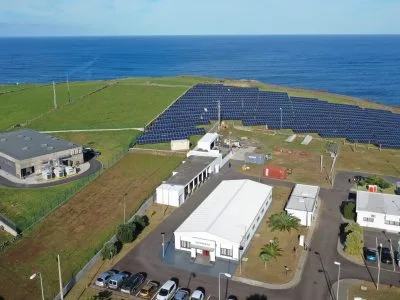Molten Air – A New Class of High-Energy Rechargeable Batteries
Unlike the lithium-ion batteries used today, lithium–oxygen batteries do not require metal oxide cathodes to produce electrochemical power, instead generating power from reactions with oxygen in the atmosphere. Air has been widely used in single-use disposable batteries, such as hearing aid batteries. However, attempts to date to use air in rechargeable batteries has not led to viable systems.
A new class of rechargeable batteries – ‘molten air’ batteries – solve these challenges by using highly conductive molten electrolytes and very high capacity multiple electron compounds such as carbon and vanadium diboride (VB2).Molten air batteries advance the field of energy storage by opening up multiple opportunities for new higher capacity batteries. These are the first batteries to reversibly use oxygen from the air to store energy via a molten salt and multiple electrons stored per molecule at the counter electrode.
If you want to know more about this and other topics directly from end users of energy storage technologies join us at one of these annual events: The Energy Storage World Forum (Grid Scale Applications), or The Residential Energy Storage Forum, or one of our Training Courses.



